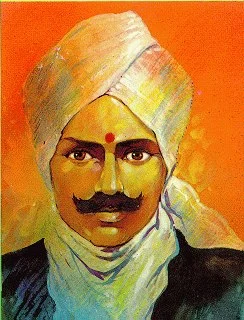Bharathiar, a revered poet and a seeker of wisdom, provides profound insights into life and spirituality through his works and experiences. His journey from a poet to a disciple of a guru, and ultimately to a person of wisdom, offers valuable lessons for those on the path of self-discovery.
The Painful Life of Destruction
In one of his songs, Bharathiar highlights the consequences of a life filled with harm and self-destruction. He warns that those who hurt others and destroy themselves will ultimately fall prey to death, becoming mere food for it. This serves as a reminder of the inevitable fate that awaits those who live a life devoid of compassion and self-awareness.
Encounter with a Wise Beggar
An incident from Bharathiar’s life illustrates the essence of true wisdom. While walking down a road, he encountered a dirty beggar and realized that the beggar had attained wisdom. Bharathiar believed that the eyes of a wise person reflect the divine within them, a silent testament to their enlightenment. True wisdom, he observed, leads one to abandon arrogance and the egoistic “me.”
The Chase for Knowledge
Intrigued by the beggar’s wisdom, Bharathiar chased after him when the beggar ran away. Cornered in a street, Bharathiar humbly asked the beggar to teach him something. The beggar’s response was a profound lesson in itself.
The Symbolic Sun and Well
The beggar looked at the sun, then at a well nearby, and finally at an object inside the well. Bharathiar imitated these actions and, in a moment of revelation, touched the beggar’s feet, acknowledging his understanding of God. The beggar’s actions symbolize that what one seeks to learn is vast and distant like the sun. However, when reflected in the well, the sun appears small and attainable. This implies that while the universe holds immense knowledge, the answers can be found within oneself.
The Limitations of Conventional Education
Bharathiar’s experience emphasizes the limitations of conventional education. He believed that traditional education often increases desires rather than fostering true wisdom. Instead, he advocated for an education that helps individuals transcend their desires, a concept he referred to as “Thiruchitrambalam Kalvi.”
Balancing Desire and Greed
It is not wrong to have desires, Bharathiar taught, but these desires should not turn into greed. The ultimate goal of education should be to cultivate a sense of inner peace and contentment, leading one toward spiritual enlightenment.
Conclusion
Bharathiar’s teachings and experiences serve as a guide for those seeking wisdom and spiritual growth. By looking within ourselves and balancing our desires, we can better understand the divine and lead a more fulfilling life.

